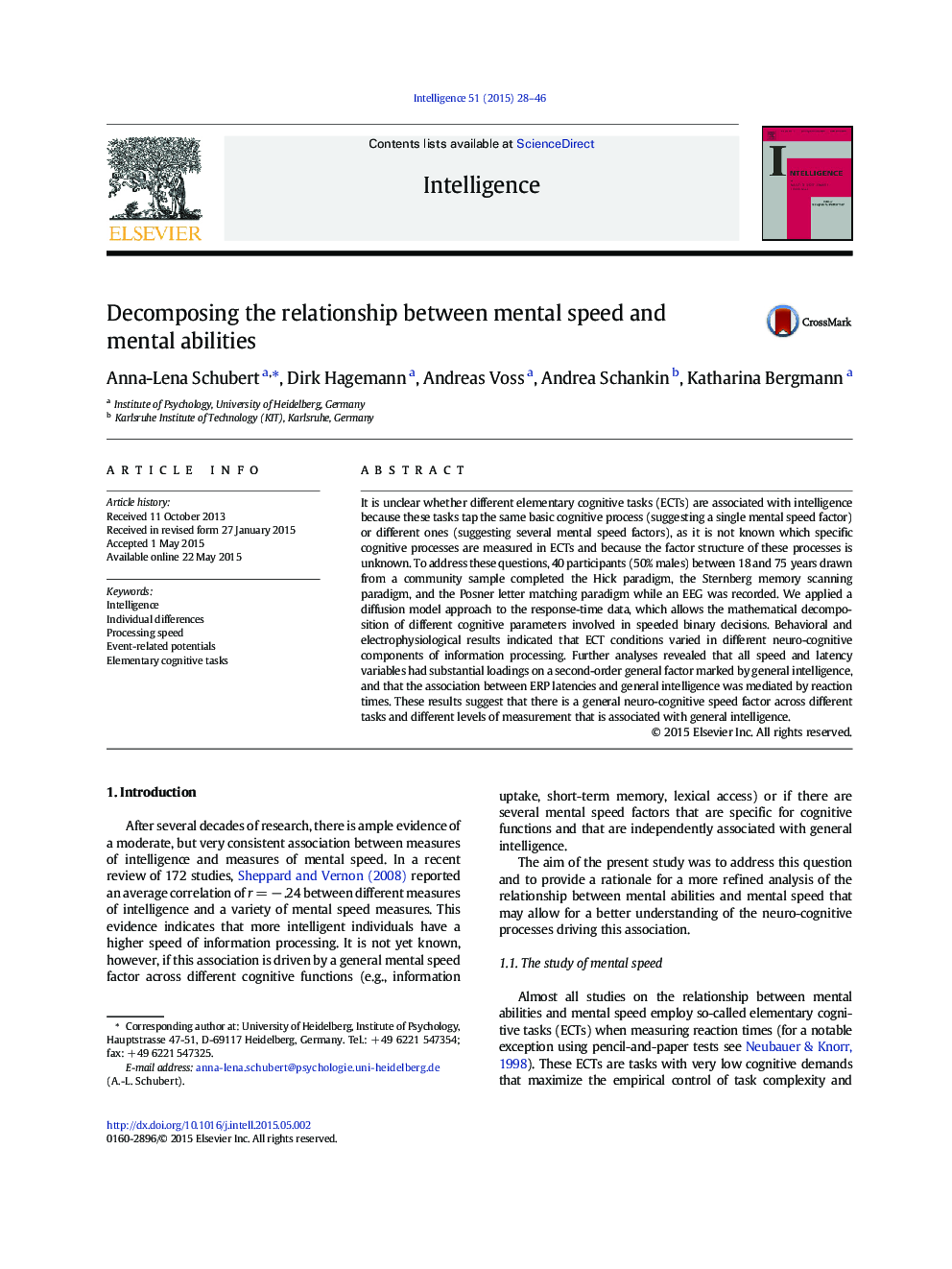| Article ID | Journal | Published Year | Pages | File Type |
|---|---|---|---|---|
| 7293727 | Intelligence | 2015 | 19 Pages |
Abstract
It is unclear whether different elementary cognitive tasks (ECTs) are associated with intelligence because these tasks tap the same basic cognitive process (suggesting a single mental speed factor) or different ones (suggesting several mental speed factors), as it is not known which specific cognitive processes are measured in ECTs and because the factor structure of these processes is unknown. To address these questions, 40 participants (50% males) between 18 and 75Â years drawn from a community sample completed the Hick paradigm, the Sternberg memory scanning paradigm, and the Posner letter matching paradigm while an EEG was recorded. We applied a diffusion model approach to the response-time data, which allows the mathematical decomposition of different cognitive parameters involved in speeded binary decisions. Behavioral and electrophysiological results indicated that ECT conditions varied in different neuro-cognitive components of information processing. Further analyses revealed that all speed and latency variables had substantial loadings on a second-order general factor marked by general intelligence, and that the association between ERP latencies and general intelligence was mediated by reaction times. These results suggest that there is a general neuro-cognitive speed factor across different tasks and different levels of measurement that is associated with general intelligence.
Keywords
Related Topics
Social Sciences and Humanities
Psychology
Experimental and Cognitive Psychology
Authors
Anna-Lena Schubert, Dirk Hagemann, Andreas Voss, Andrea Schankin, Katharina Bergmann,
